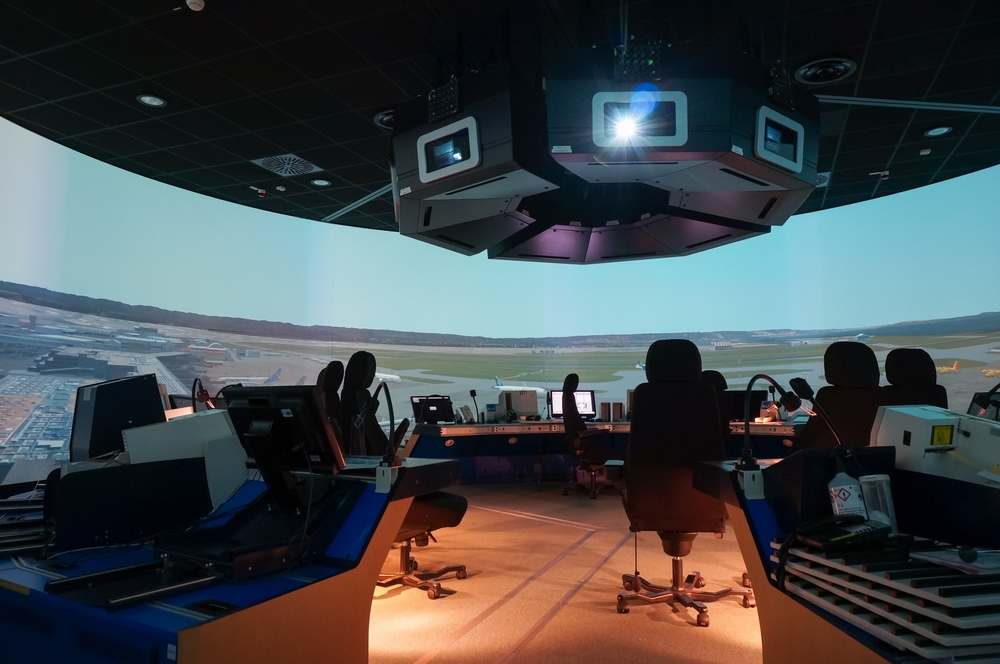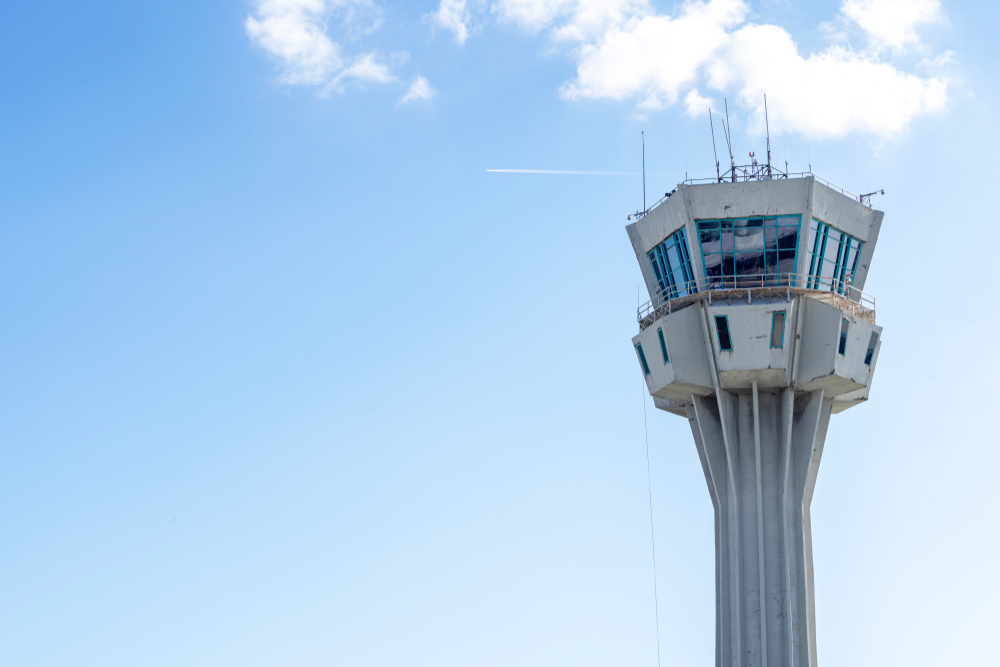If someone asked you to name one of the most prestigious and critical roles in aviation, what would your answer be? Perhaps you’d say the career of an Air Traffic Controller (ATC). Air traffic controllers play a vital role in ensuring the efficiency of air traffic, guiding aircraft safely through their routes. The role of an ATC is rewarding and offers excellent career prospects, but it also comes with its challenges. What are they? Let’s explore the key pros and cons of pursuing an Air Traffic Controller career.
Table of Contents
The pros of an Air Traffic Controller career
1. High salary and financial security
One of the biggest reasons for becoming an air traffic controller is the high salary. In many countries, ATCs earn good money, especially compared to other aviation jobs. In the U.S., the average salary for an ATC in 2025 is about $95,273 per year. A 30% pay raise has been proposed recently, which could increase salaries to around $160,000 per year after three years on the job.
In Europe, salaries vary by country. For example, air traffic controllers in Belgium earn about €113,092 per year, while in France, they make around €53,200 annually. On top of great pay, the air traffic controller career also comes with excellent benefits, like health insurance, retirement plans, and other perks.
2. Job stability and demand
Air traffic controllers are in high demand worldwide, making job stability a big advantage. In the U.S., the FAA reports that only 23 out of 313 facilities have enough staff, with a 24% vacancy rate. This shortage affects flight safety and efficiency. To fix this, the FAA is hiring more controllers, offering a 30% pay raise, and speeding up the hiring process. However, because training and certification take time, it may be years before all positions are filled.
Globally, the air traffic control market is expected to grow to $12.37 billion by 2029, with a 6.7% annual growth rate. Demand is especially high in Europe, where air travel is rapidly increasing.
3. Dynamic work environment
Air traffic control is never a dull job. The fast-paced work means every day is different. ATCs handle various aircraft, changing weather, and different traffic levels, keeping them sharp and engaged. For aviation lovers who enjoy quick thinking and problem-solving, it’s a thrilling career choice.
4. Opportunities for career advancement
Becoming an air traffic controller takes special training, but there are plenty of opportunities to grow. Many start in smaller airports and work their way up to busier control centers. With experience, ATCs can move to new locations or take on roles in supervision, training, or management. This makes it a great long-term career with strong growth potential.
5. Critical role in aviation safety
Air traffic controllers play a key role in keeping passengers and crew safe. They guide planes, maintain safe distances between aircraft, and communicate with pilots to prevent accidents and keep flights on time. Many controllers take great pride in knowing their work helps millions of people travel safely every day.
6. Extensive training and skill development
Like other aviation professionals, air traffic controllers undergo extensive training to ensure they can handle any situation. This training helps them develop important skills, such as making quick decisions, communicating clearly, multitasking, and solving problems. The experience gained in this role can also be useful for other jobs in aviation or different industries.
7. Positive work environment despite the stress
Air traffic controllers are part of a tight-knit team. Whether in a control tower or en route center, they work together to manage air traffic safely. This teamwork creates a supportive environment where controllers share tasks and help each other during busy or stressful moments.
8. Opportunity to travel
For those who love aviation, being an air traffic controller offers the chance to work in different places, especially if you are with an international organization or government agency. The job may also allow you to work at various airports or centers around the world, giving you opportunities to travel and experience new cultures.
9. Work-life balance
While the nature of the work can be demanding, air traffic controllers often enjoy a good work-life balance, particularly because their shifts are structured. Many controllers work in a 24/7 schedule that includes rotating shifts, which means they can have extended time off between workdays. For those who appreciate flexibility, this is a great benefit, as it allows time for personal activities outside of work.
10. Prestige and respect
Air traffic controllers are highly respected in the aviation industry and beyond. The job requires skill and responsibility, and controllers are recognized for their important roles. The respect they receive from colleagues, industry professionals, and the public often motivates them in their work.

The cons of an Air Traffic Controller career
1. Stressful and high-pressure job
One of the biggest challenges of being an air traffic controller is the high stress. ATCs are responsible for the safety of countless passengers and must make quick decisions in pressure-filled situations. The job often involves handling intense moments, especially during busy times or bad weather. This stress can be mentally and emotionally draining.
2. Irregular hours and shift work
While flexible schedules can be a benefit, the irregular hours and shift work required of air traffic controllers can be a significant downside for some. Since airports and air traffic control centers operate 24/7, controllers are often required to work nights, weekends, and holidays. The need to adjust to rotating schedules can lead to a risk of fatigue and burnout over time.
3. Mental fatigue and burnout
The mental demands of air traffic control are very high. Controllers must stay sharp, focused, and alert for hours during their shifts. Constantly managing air traffic and communicating with multiple aircraft pilots can be mentally exhausting. The pressure to stay precise and accurate can lead to burnout if not managed properly.
4. Rigorous training and testing
An air traffic controller role requires passing tough exams and completing challenging training. The training process takes time and effort. Along with classroom lessons, ATCs must also practice in simulations and real-world situations. Not everyone passes these tests, making it a competitive and difficult career to enter.
5. Isolation and loneliness
In some air traffic control centers, controllers may work in isolated environments, particularly in remote areas. The physical and mental demands of the job can create a sense of loneliness, especially during long shifts or in less busy facilities.
6. Exposure to accidents
Despite strict safety protocols, ATCs sometimes encounter accidents or near-miss incidents. These situations can be emotionally draining, as controllers carry the responsibility for ensuring safety in high-risk scenarios. The psychological effects of such incidents can last long after they occur.
7. Age restrictions
Air traffic controllers are required to retire at a young age due to the high-stress nature of the job. In the U.S., the FAA sets the retirement age at 56 to maintain safety and performance, as the job requires focus and quick decision-making. In Europe, EASA sets the retirement age at 57, though some countries like the UK require retirement by 56.
While these age limits ensure safety, they also limit long-term career options for those who want to continue working. However, they open up opportunities for younger people to enter the field, and controllers can transition into roles like management or training after retirement.
8. Job competition
Air traffic controller positions are limited, especially in some countries and regions, which makes the competition tough. Because of this, only a small number of candidates are hired. To qualify, aspiring controllers must meet high education standards and specific age and health requirements. Additionally, many air traffic control organizations only hire new controllers at certain times of the year, which means fewer opportunities to apply.
9. Limited job opportunities for entry-level roles
Because experienced controllers often stay in their roles for many years, entry-level positions are rare, further increasing competition for those spots.
10. Regulatory compliance pressure
Controllers constantly need to keep up with changing aviation regulations. These rules cover everything from airspace management to safety procedures. ATCs must stay informed about any updates, which often require regular training and exams. This ongoing need to learn and adapt can be stressful, as even small mistakes can have serious consequences. The pressure to follow these rules perfectly while managing air traffic makes the job high-stakes.

Choosing an air traffic controller career comes with significant rewards but also presents notable challenges. The ATC role offers high earning potential, job security, and the opportunity to work in an exciting and dynamic environment. By weighing the pros and cons carefully, aspiring air traffic controllers can make an informed decision about whether this prestigious and vital career path aligns with their personal and professional goals.
If you are considering a career in air traffic control but have some doubts, we’ve debunked some of the most common myths about an air traffic controller career here.

